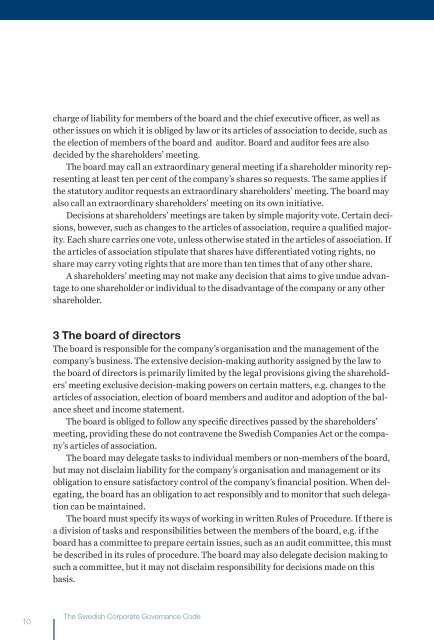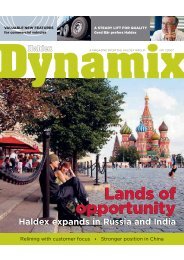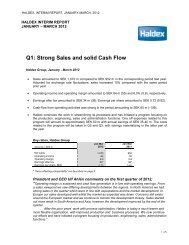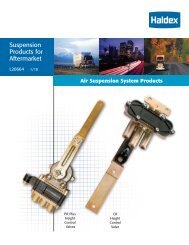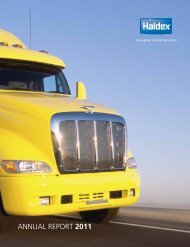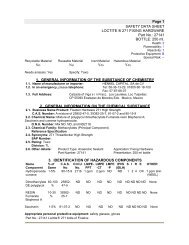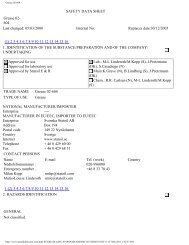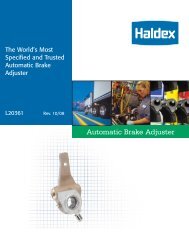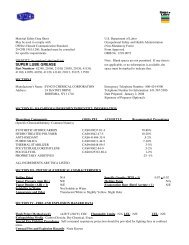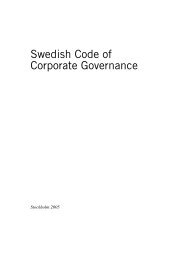The Swedish Corporate Governance Code - Eniro
The Swedish Corporate Governance Code - Eniro
The Swedish Corporate Governance Code - Eniro
Create successful ePaper yourself
Turn your PDF publications into a flip-book with our unique Google optimized e-Paper software.
10<br />
charge of liability for members of the board and the chief executive officer, as well as<br />
other issues on which it is obliged by law or its articles of association to decide, such as<br />
the election of members of the board and auditor. Board and auditor fees are also<br />
decided by the shareholders’ meeting.<br />
<strong>The</strong> board may call an extraordinary general meeting if a shareholder minority representing<br />
at least ten per cent of the company’s shares so requests. <strong>The</strong> same applies if<br />
the statutory auditor requests an extraordinary shareholders’ meeting. <strong>The</strong> board may<br />
also call an extraordinary shareholders’ meeting on its own initiative.<br />
Decisions at shareholders’ meetings are taken by simple majority vote. Certain decisions,<br />
however, such as changes to the articles of association, require a qualified majority.<br />
Each share carries one vote, unless otherwise stated in the articles of association. If<br />
the articles of association stipulate that shares have differentiated voting rights, no<br />
share may carry voting rights that are more than ten times that of any other share.<br />
A shareholders’ meeting may not make any decision that aims to give undue advantage<br />
to one shareholder or individual to the disadvantage of the company or any other<br />
shareholder.<br />
3 <strong>The</strong> board of directors<br />
<strong>The</strong> board is responsible for the company’s organisation and the management of the<br />
company’s business. <strong>The</strong> extensive decision-making authority assigned by the law to<br />
the board of directors is primarily limited by the legal provisions giving the shareholders’<br />
meeting exclusive decision-making powers on certain matters, e.g. changes to the<br />
articles of association, election of board members and auditor and adoption of the balance<br />
sheet and income statement.<br />
<strong>The</strong> board is obliged to follow any specific directives passed by the shareholders’<br />
meeting, providing these do not contravene the <strong>Swedish</strong> Companies Act or the company’s<br />
articles of association.<br />
<strong>The</strong> board may delegate tasks to individual members or non-members of the board,<br />
but may not disclaim liability for the company’s organisation and management or its<br />
obligation to ensure satisfactory control of the company’s financial position. When delegating,<br />
the board has an obligation to act responsibly and to monitor that such delegation<br />
can be maintained.<br />
<strong>The</strong> board must specify its ways of working in written Rules of Procedure. If there is<br />
a division of tasks and responsibilities between the members of the board, e.g. if the<br />
board has a committee to prepare certain issues, such as an audit committee, this must<br />
be described in its rules of procedure. <strong>The</strong> board may also delegate decision making to<br />
such a committee, but it may not disclaim responsibility for decisions made on this<br />
basis.<br />
<strong>The</strong> <strong>Swedish</strong> <strong>Corporate</strong> <strong>Governance</strong> <strong>Code</strong>


